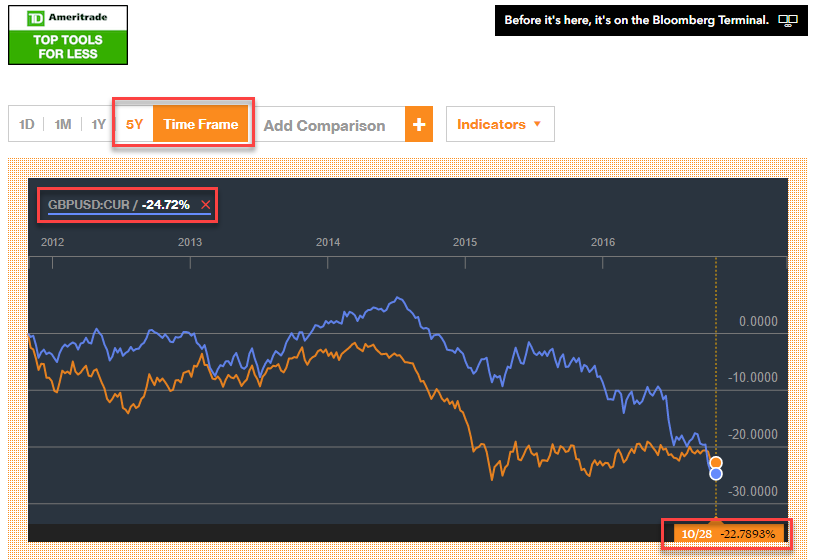As regular readers know is my custom, when I return from a trip to London I typically endeavo(u)r to distill my reactions in a brief report. As my trip this week was especially brief (shy of 72 hours), this report will be too.
By way of background, I had 10 meetings over two business days, with US and UK-based firms and old friends and new (and welcome) acquaintances. I hadn’t been in the City since before Brexit, and it’s safe to say there is virtually no clarity being expressed from any quarter—business, politics, diplomacy, or law—as to what Theresa May’s famous koan that “Brexit means Brexit” will finally mean when it is unpacked and laid out. And more than one person told me it will be a decade before it’s all clear.
In the meantime, commerce calls. For the first few months after the Brexit vote, many firms did their best Alphonse & Gaston imitation: “‘After you…’ ‘No, heavens no; after you!'” The realization has dawned that waiting to find out what everyone else is going to do could involve a very long wait indeed. And so work resumes.
In most of these reports, I spend some time discussing the relative differences in perspective and outlook between US and UK based firms, and this will be no exception. On that score, the most obvious and attention-getting development was the pound sterling’s jolting move downward in the hours after the Brexit result was announced, with the pound reaching a 30-year low. Bad news, you would have to imagine, for firms recording revenue in pounds but with substantial expenses in dollars (many UK firms): And vice versa for dollar-denominated revenue and meaningful expenses in pounds (the US side).
But all is not so obvious. Some highly transactional firms based in the City are benefiting from the discovery by global investors—strategic acquirers, private equity funds, and more—that suddenly much of Britain has gone on sale. Acquisitions which might not have made sense at $1.60/£1.00 benefit from different math at $1.21/£1.00. One of those firms I met with reported that they were working “at capacity, and since both our income and expenses are almost entirely in pounds, it’s fine by us!”
That’s one part of the currency exchange rate story, but the real story is, I believe, much longer-term, deeper, and relatively unnoticed. Here’s a five year look-back chart showing the value of the euro and of the pound vis-a-vis the dollar where the starting line five years ago is arbitrarily indexed to zero. You can see that the pound (in blue) has declined nearly 25% and the euro (in orange) about 23%. While the euro’s decline has been relatively steady, the pound was firm during the first few years before beginning to slide with a Brexit punctuation from -10 to -20 in the middle of this year:
This can make it tough to compete in the talent market with those whose revenue is in $$ while yours is in ££ or €€ instead.
Currency exchange rate issues aside, for the vast majority of firms wherever based the most apt word for the economic environment lately is “distressed.” Nothing can sugarcoat that reality.
Over lunch on the last day I was there my host asked, “So what do you plan to say in your ‘Letter from London?'” “I haven’t yet given it a thought,” was my hasty and candid response.
Now I have, and I’d like to leave you with a thought about the conventional wisdom.
The conventional wisdom holds that US firms are by and large doing quite nicely in London, while UK firms’ experience in New York has been, charitably, less positive. I won’t challenge the second half of that assertion because, well, because heretofore I think it has been inarguable. (Whether it’s in the process of changing is topic for another day).
But I do want to venture a challenge to the first part: I believe a surprising number of US based firms are bleeding in London. What they have in common at a gross level are:
- Going to London because it seemed like the thing to do—to plant a flag or to woo a client whose needs were already being quite well served, thank-you-very-much, by incumbent firms in the City.
- And going to London with only the haziest notion of what practice group mix, exactly, they were planning to offer: How it played to their strengths, why they couldn’t achieve the same purpose from a stateside base, and what new business they would pry out of the hands of entrenched competitors.
It turns out that there are lots of US firms roughly matching that profile. They neglected to figure out why they opened in London to begin with, and they’ve left the question unanswered ever since, perhaps aggravating their inertia through induging in the Fallacy of Sunk Costs thinking.
If this is remotely right, I wonder how many US firms we may see decamp in the coming years?
Strategically, I could make a case that a lot of them should pull up stakes.
But operationally, the strong dollar permits them to be sloppy—sloppy in thinking, sloppy in execution, sloppy in taking hard decisions. Sometimes, alas, operations trump strategy.





“the strong dollar permits them to be sloppy—sloppy in thinking, sloppy in execution, sloppy in taking hard decisions. Sometimes, alas, operations trump strategy.”
This is a dangerous time for any firm with Sterling as its base currency. As you point out, the strategic execution of many US firms’ entry into the UK market has left a lot to be desired. However, if they are able to overcome those strategic missteps they could become very deadly competitors indeed.
Law is a people business and money talks. If the US firms can call away the top talent from the UK firms then that could enhance the credibility of their UK offices. If the offering of the US firms wasn’t attractive enough before then perhaps the ‘Brexit paybump’ delivered by the fall in sterling may be enough for them to seal the deal.
From the perspective of the UK firms, their profit pools will most likely be denominated in sterling so many partners based outside of the UK have just received an FX-induced a pay cut. The expensive assaults on the US New York legal market have just become even more expensive. Any firms trying to sweeten PEP in the hope of merging with a US firm will have more work to do as their sterling-denominated profit is now worth a lot less. AND the recent pay rises at the top end of the UK legal market have been largely neutralised vis-a-vis the US firms due to the fall in sterling and the recent pay war lead by the New York firms.
Interesting times ahead.
IU